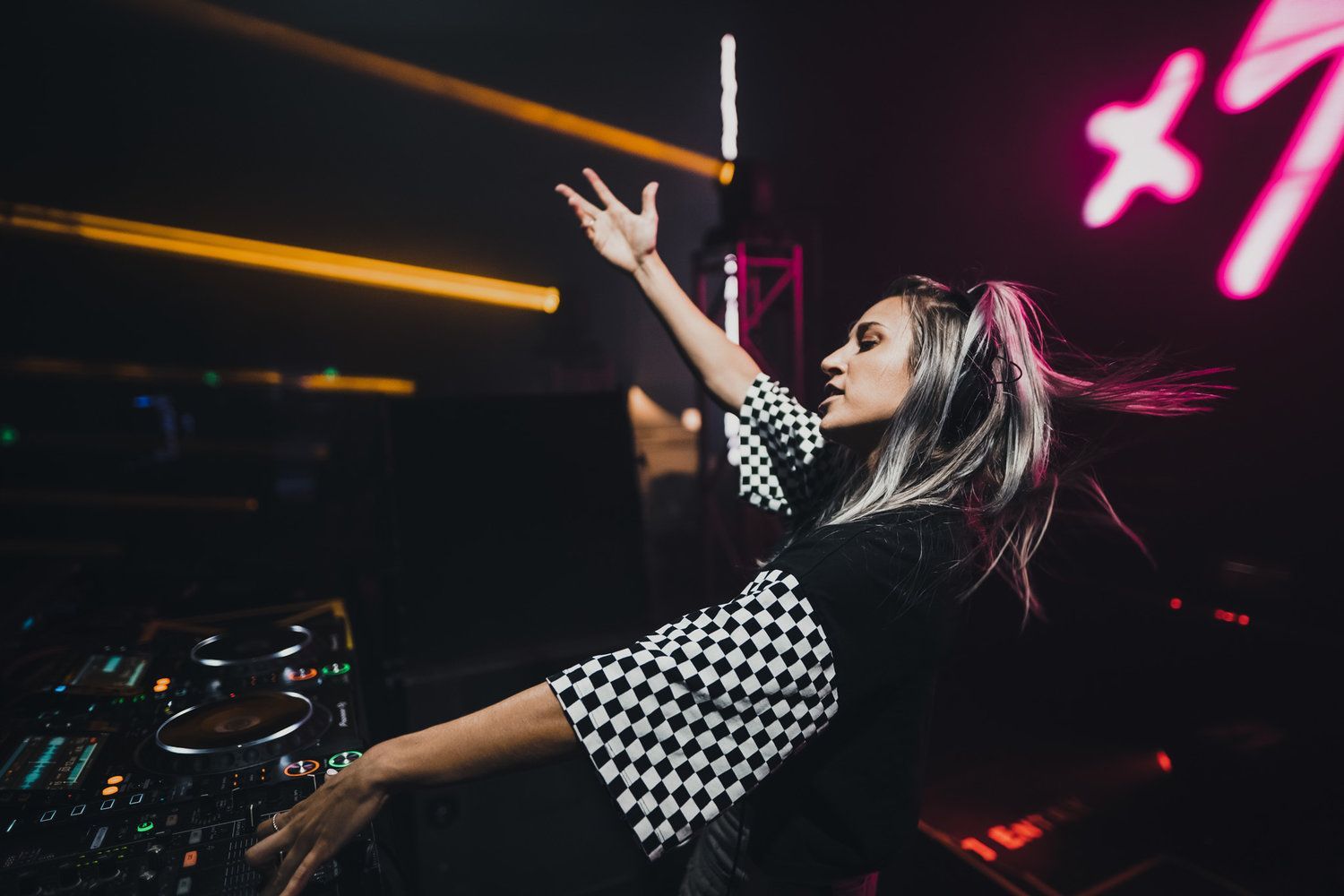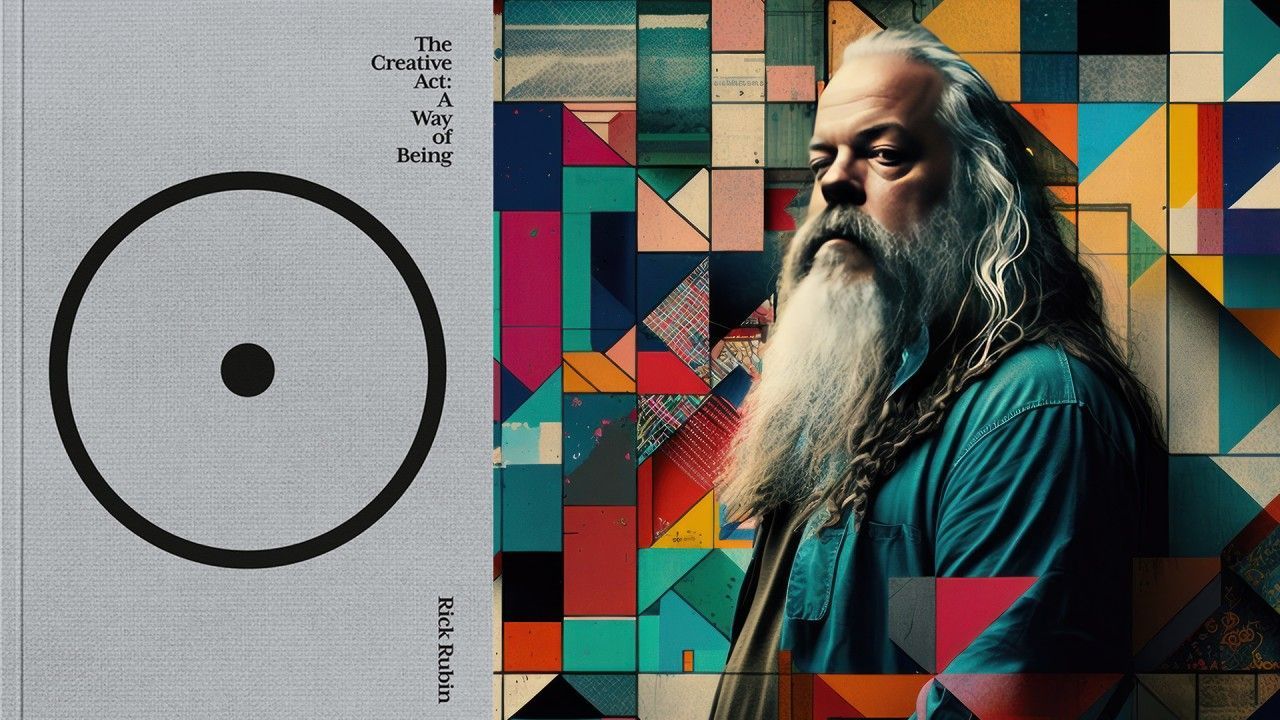Tanner Chung, better known as Dack Janiels, grabbed bass fans’ attention around the world for his productions and skills on the decks. Check out his story and what led him to attend ICON Collective.
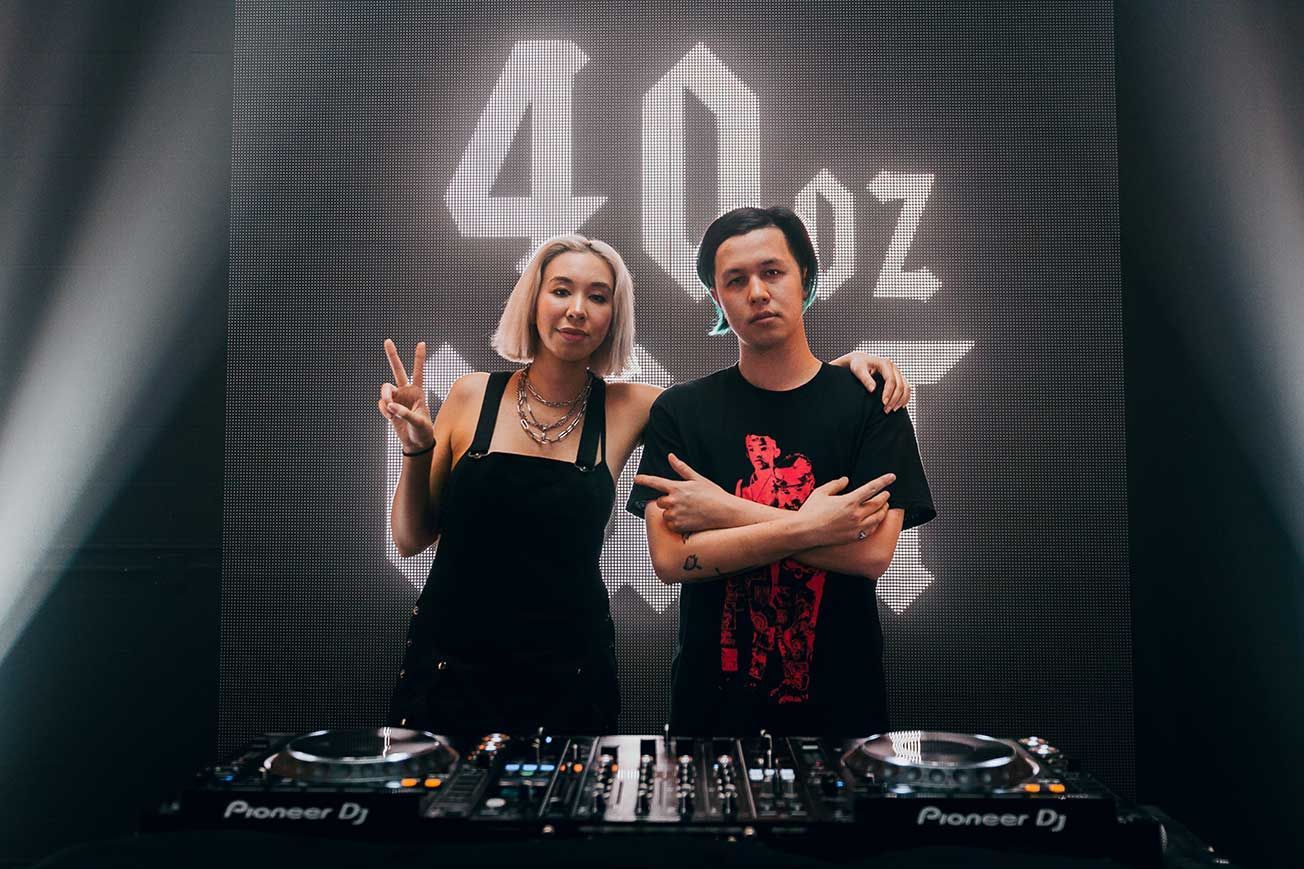
Introducing Dack Janiels
The one true, infallible way to find your artistic path or any path is to stay true to yourself. Everything about you is unique. Your interests, ideas, and perspectives. They cannot be replicated. By defining yourself with this uniqueness, you will always stand out.
This is something Dack Janiels – real name Tanner Chung – has done since the beginning of his music career. Even before setting foot on the ground at ICON Collective.
Before setting out on the journey to be a touring artist, Tanner was and continues to be about skateboarding. From the outside, skating and music may not seem like the most aligned pursuits. But from within, they’re counterparts of each other in their appeal to youth culture.
Tanner saw that shared appeal from the beginning. He leaned into it to not only create his profile with Dack Janiels, but his record label, merch line, and artist collective called 40oz Cult.
The music Tanner makes as Dack Janiels is music he enjoys. The same holds for the music he releases through 40oz Cult with his sister and collaborator, Wenzday. The label represents music he and his friends enjoy. Also, the clothing Tanner designs through 40oz Cult is similar to the grungy skate fashion aesthetic he enjoyed wearing in his younger years.
In short, everything about Tanner Chung is authentic, and ICON played a small but effective role in emphasizing that intention.
Dack Janiels Interview
Read on to see how his true passions evolved into the force that is Dack Janiels and 40oz Cult.
How did you first get involved in music?
I’ve been skateboarding my entire life and feel skating and music go hand in hand. In high school, I was into chop and screw rap. That was a weird subgenre that helped pioneer the trap movement. I would also mess around in Ableton Live and stuff like that.
When I moved down to LA, I went to Cal State Northridge for graphic design doing logo work and things like that. I saw the ICON ad with Protohype when I had gotten into dubstep after Skrillex released Scary Monsters and Nice Sprites. At the time, I was listening to Protohype and artists like Getter. So, when I saw the ad with Protohype, I realized ICON was the only school teaching the genre I’m trying to make.
That ad propelled me in. Honestly, I had been semi-producing for two years prior. I was breaking into making sounds and stuff like that on synths. Then when I started at ICON, I took it more seriously.
I figured out the artist project I would do with Dack Janiels towards the end of my tenure at ICON. It was a nine-month program back then. Probably at month seven or eight, we had to make a logo and drop a song on SoundCloud. And at the time, I had a buddy who worked at thissongslaps.com. He heard the song I was going to use for the project because I always sent him music. He offered to cover it. I loved the idea because it made my project much better, so I stuck with Dack Janiels.
At what point did 40oz Cult start?
With the name Dack Janiels, keeping on theme was a big part of the brand and project. When I started 40oz Cult, I had this idea to make an imprint in the back of my mind. I wanted a place to release my music. A couple of years into Dack Janiels, I also wanted to have something involved with the name. Something that kept true to my skate roots.
Five years ago, room bottle service culture was huge – especially with EDM. It was an interesting time because it was very night club dominated. Even though that’s still true today, I wanted to make something that embodied our aspect of being in the gutter.
That’s when I came up with the name “40oz Cult.” A 40oz is the symbol of the “you got a dollar fifty, and you want to get a drink” lifestyle. I also wanted to start something I could use. As artsy and corny as it sounds, something that would call back to my upbringing.
When you were at ICON, what classes benefited you the most?
In terms of importance, Paul Laski, with a synth, was the most influential in my desire to learn sound design. For music business, the Art of Flow class split between Nik Cherwink and Chris Wight was cool to get double insight.
I feel like Art of Flow gave me a good mindset with music business because it’s easy to go corporate. The way I’ll treat working on a stream. We do advertising where I’m talking with sponsors and stuff like that. It’s like having one hat on. But, I feel like Art of Flow prepared me to go into those conversations with creative stuff. Who’s playing at this time? Who’s doing this or that? Or who’s releasing on the label? That class gave me more of a basis to think about those questions and how to go about them in the best way possible.
Why did you pick ICON instead of going it alone or another school?
Taylor graduated from Northridge, and I was going that route anyway. I wanted to get a degree or certification but saw how advanced the ICON program was.
Going to a college music program to be an electronic music producer, even a regular producer, feels like you’re setting yourself up with an outdated program. Whereas going to ICON, they’re teaching Ableton Live and Logic Pro with up to date programs and software. I think that alone gave it an edge in my head. Then a tour of the facility locked me in.
How did Taylor come to attend ICON, and what’s it like working with her, touring, running 40oz, etc.?
Taylor had DJ’d before me. She did open format gigs, nightclub gigs, and stuff that wasn’t EDM centric. When I went to ICON, I had my mind on production first. Then Taylor wanted to make the pivot from club DJ to artist. I think seeing my experience there; she saw how it leveled me up. That helped make the transition easier for her rather than going into it blind.
Many people who DJ’d prior or even made music prior with real instruments feel this intimidation going in. We don’t know what it entails writing a song, mixing, mastering, and putting out music independently. Seeing my last three months at ICON with Art of Flow, focusing on mixing and mastering, she knew this was the place to go if she was going to pursue this.
To touch on touring, we launched her first couple releases on 40oz, the label. Taylor runs our releases and is head A&R. She heads all that now, and I wear the merch hat. But it’s cool seeing that progression from starting out having been there. I had been a touring act for a year or two by the time she was launching into Wenzday and graduating from ICON.
Many questions like “does this look good on a contract?” or stuff like that was already handled. So, I think she had a smooth transition. Then we dominated. She’s dominated her music and made a name for herself now.
What advice do you have for those starting their journey as an artist or looking into ICON?
For many people, the best advice I can give is to work on your craft every day. Stay stoked on your music but don’t feel like you’ve hit a cap.
Every single day I wake up and try to learn at least one thing. It might be music related, something about the world, or politics. Having that mindset of continuous learning is key.
Once people get in too comfortable of a spot, they burn out. But if you’re constantly learning and improving your craft, you’ll always be better day two, day three. Having a mindset like a sponge of constantly learning is the biggest thing. Especially as you play shows and are around many people.
You never know what you will learn from someone from a five-minute conversation. A producer will mention a cool trick. I’ll end up trying it myself and be like wow. Had I not been listening or had I been too caught up in the party, I probably would have missed it. Also, many guys can get an ego and become hyped on themselves, which is awesome. Having confidence is crucial, but there’s no perfect producer except for Noisia [laughs].
How do you manage your mindset and ego?
Just taking 20 or 30 minutes in the morning to think. Not be on your phone or social media. That’s helped me manage creativity.
Being an artist some days feels like a job. Especially when you’re playing the third show of a weekend and waking up at 5am to make a flight across the country. It can feel like a job, and that can make me bummed. But then I sit down for 20 minutes and realize how thankful I am to work in music. I get out of that mindset real quick!
Take the time to look inside yourself and think, “why am I doing this.” At the end of the day, I make dubstep because I love this genre. It’s what makes me happy.
Where do you do a lot of your learning?
In terms of media other than movies and books, I listen to podcasts. I like to hear other artists’ stories of how they launched—especially the obscure guys. I also like the one-hit-wonder guys from back in the day talking about 70s and 80s rock music. Those guys have stories about how they got discovered and made music in a garage with no social media or Facebook. They’ll work for ten years on an album before getting signed.
Whether you’re trying to make dubstep, house music, future bass, think back to the guys who made you want to make music. Like 50 Cent, for example. Listen to a 50 Cent interview. For me, I love Chief Keef. Hearing a 19-year-old kid from Chicago’s Southside became a number one Billboard act is crazy to me. That always inspires me and gets me a little motivated for the day.
Any closing thoughts?
Starting new as an artist looks like it sucks, but things will get better. Do you have a support system? Because I feel like the EDM community is a beautiful place. If you’re a nice person, I believe if you project that niceness and look someone in the eyes when you’re talking to them, you can connect with people.
I’ve met many people over the years, thousands of people who are such great souls. So, it’s easy to feel bummed and focus on how there are no shows, etc. But, this is an opportunity to become an artist and a musician first. It’s easy to get caught up seeing EDC Vegas and other big festivals and set those as your goal. But there’s a whole world of music out there. How many people from ICON have become a vocalist or now work in pop music? I’m just staying hyped right now in a time of crisis.
That’s an excellent way to put it. The mainstage DJs are just one tiny section of music.
Exactly! I taught private lessons after graduating from ICON. I did mixing and mastering work for two years before I could make my rent from playing shows.
There’s a whole world beyond DJing to look at. Do at least something you like. For example, having Ableton Live open for me is enough. I get to work a job where I have Ableton open every day. I don’t care if I’m recording vocals for the wiggles; I’ll feel hyped. I’m using the skill set I signed up for to get a buck.
Connect with Dack Janiels
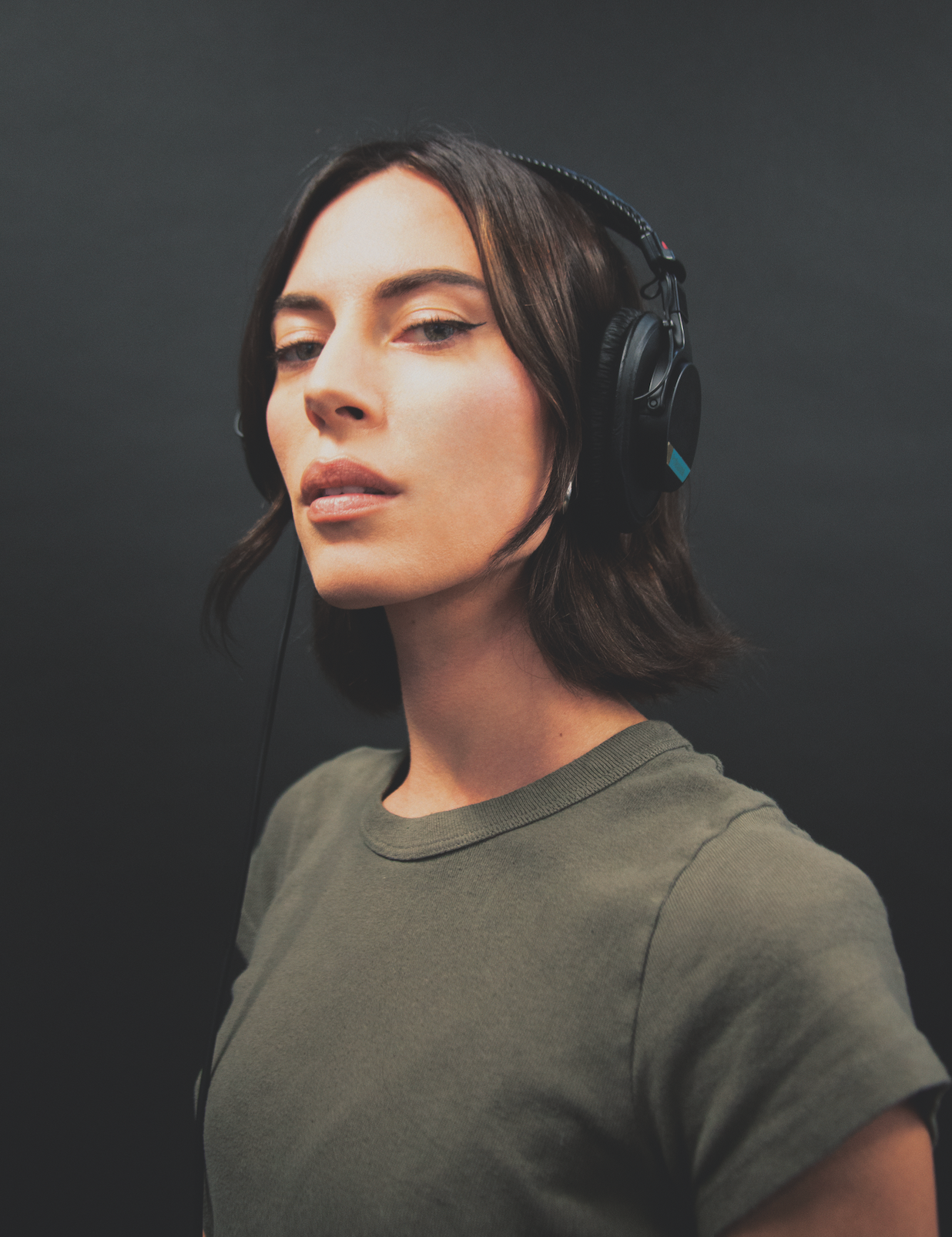
Turn your passion for music into a Profession: Learn more about our Music School Programs!
MORE ARTICLES FROM THE ICON BLOG
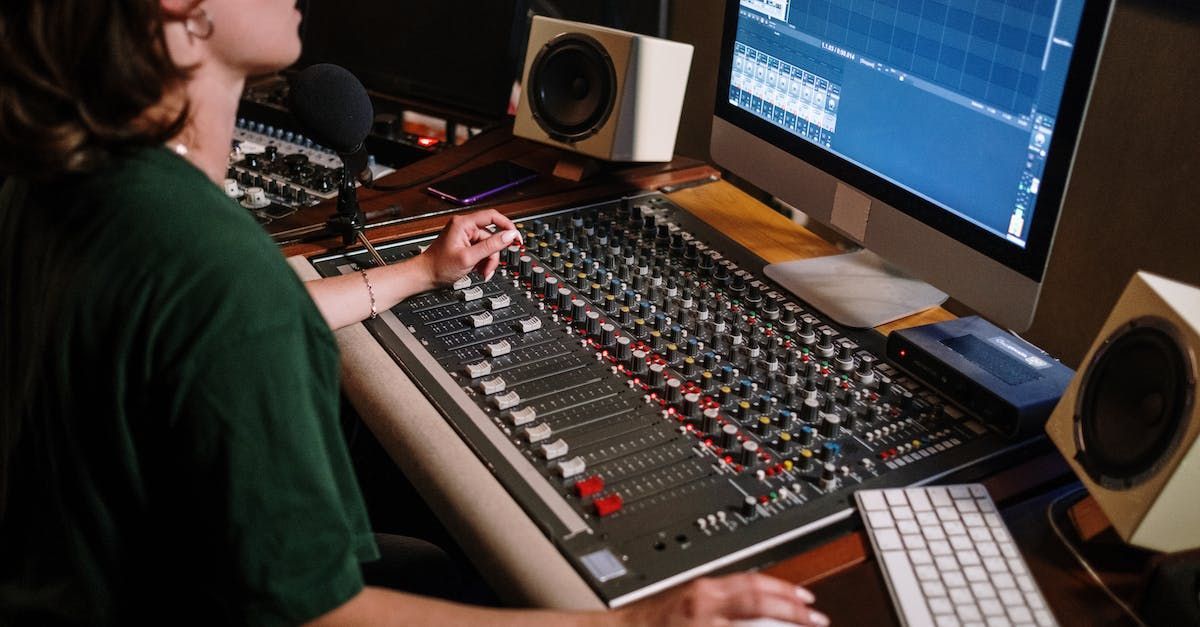
FIND YOUR SOUND, HONE YOUR CRAFT:
Are you ready to turn music into a career? ICON prepares students to become music producers, composers, performers, recording artists, professional DJs, and entrepreneurs in the entertainment industry. Click below to get information about our award-winning programs:
